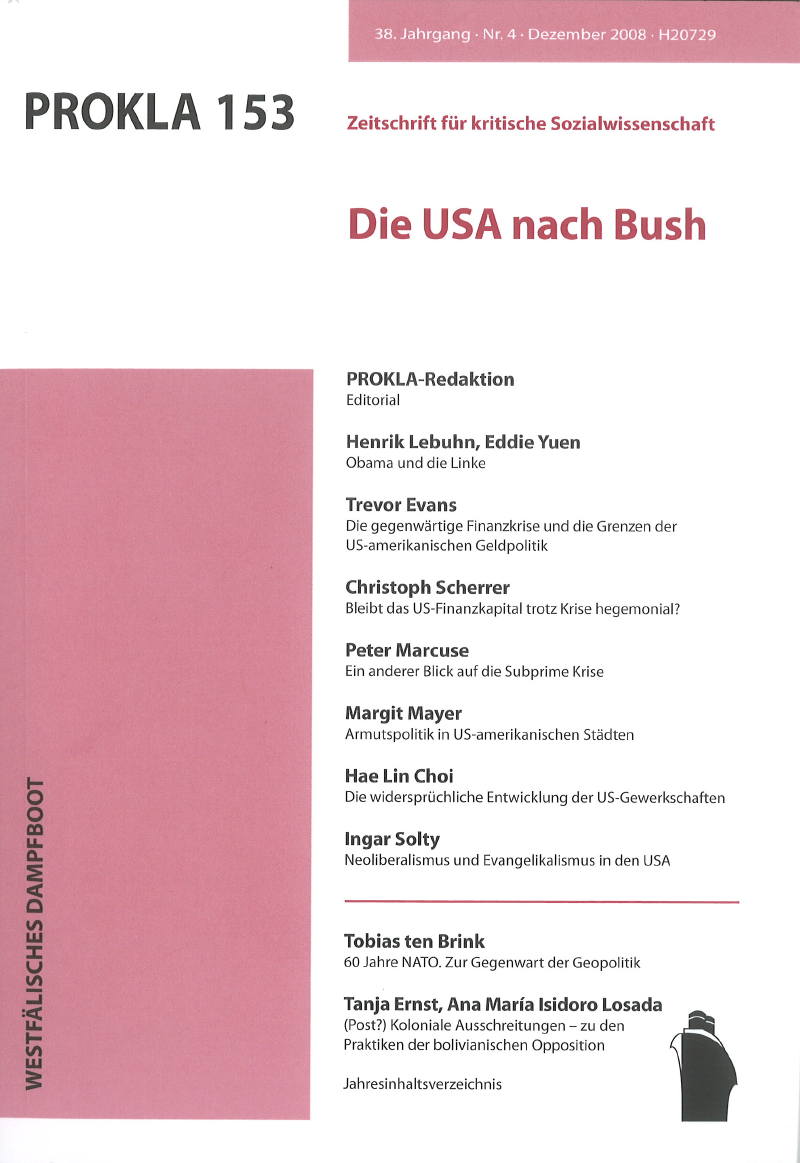Armutspolitik in den US-amerikanischen Städten
DOI:
https://doi.org/10.32387/prokla.v38i153.453Schlagworte:
USA, Armut, Armutspolitik, UngleichheitAbstract
While poverty has been growing and becoming manifest in new forms of segregation in US cities, welfare reform has been accompanied by intensified efforts to enhance social control of urban space. In parallel with the shrinkage of social services and the erosion of job security, the (public, private, and third sector) provision of services have exploded - with detrimental impacts on the fabric of urban democracy and citizen participation. By looking at developments in Los Angeles, this article analyzes the implementation of a new generation of "social cohesion" policies in US cities. Community development and empowerment programs as well as welfare-to-work programs involve non profits such as community-based organizations and development corporations in the implementation of these services, who are tasked with the activation of marginalized groups and neighborhoods, and with the provision of local security. Their practice has transformed the quality of urban participation: while invoking empowerment and cohesion, it has reduced participation to minor issues and restricted access to the relevant decision-making arenas.






